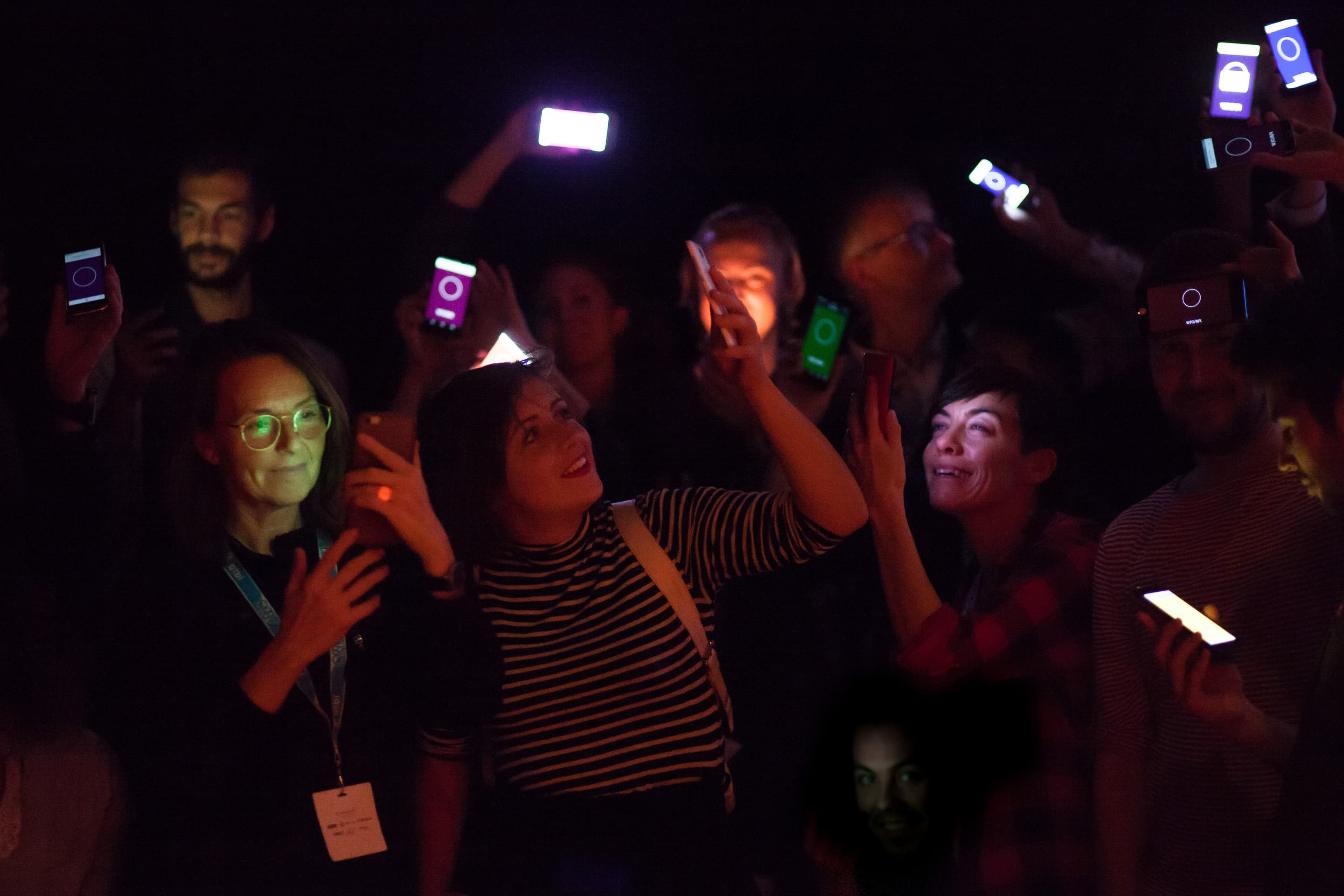
Everyday Reality
The 11th edition of IDFA’s new media strand DocLab unfolds this year under the banner Uncharted Rituals, exploring human behaviours evolving around the use of digital technology.
This is a timely theme in an era when digital technology touches nearly every aspect of our lives, from how we connect with friends and family to finding a holiday pad, hailing a taxi or even stocking our fridges and turning on and off the lights. But this also comes at a time when many people, especially those in the community of artists and creatives who have come to be associated with DocLab, are questioning their initial embrace of digital technology and life online.
Crossroads
Referring to a quote in a recent New York Times interview with internet and virtual reality pioneer Jaron Lanier, in which he expressed his fears about the darker, more controlling aspects of the digital age, DocLab creator and curator Caspar Sonnen suggests the community is at a crossroads.
“To people like me, and everyone in the New Media department at IDFA and the artists in this room who once fell in love with the internet and the wonderful and unchartered interactions it enables, this quote seems poignant and painfully true – especially today, as we are losing the open spirit of the internet to a handful of corporations,” he told the audience at DocLab’s opening night event on Thursday.
Offline
His thoughts around a changing relationship with the internet were echoed in a short opening night presentation by internet artist Jonathan Harris, the first interdisciplinary documentarian to be honoured with the task of compiling an IDFA Top 10, who is also being feted with a retrospective at the festival.
Harris has been associated with DocLab since its opening year, when his early work We Feel Fine – gathering traces of human emotion from internet blog entries – was part of the showcase. He gave a moving, life-affirming talk about his decision to go offline for a time and move back to his family farm in Vermont, where he has embarked on a series of non-digital projects such as figuring out how to fabricate glass using the material on his family’s land (and his late mother’s ashes).
Accessible
The mood of introspection was lightened by the premiere of W/O/R/K – an interactive performance involving the audience and their smartphones – devised by Dutch collective The Smartphone Orchestra and UK digital creation group Anagram. The performance will be reprised at tonight’s DocLab Live event, entitled Orchestrated Rituals.
Sonnen’s consideration about control, meanwhile, runs through many of the installations on display at DocLab’s Digital Rituals exhibition in Flemish Arts Centre De Brakke Grond.
#veryveryshort, for example – a series of 10 interactive 60-second experiences that can be opened on a smartphone – is the fruit of a joint call for projects by the National Film Board of Canada and ARTE, in association with DocLab, adhering to a set of 10 creative rules, one of which is that the experience should be accessible on a mobile browser, rather than an app.
Sonnen highlighted this stipulation, saying it had been important that they were available in “an old-fashioned browser, as opposed to locked-in app stores and the regulations we have to abide by.”
The experiences include the VR-based Sleep Together, taking the user through a series of sleep rituals with other participants, and Stir – a personalised wake-up service – delving into the information in the participant’s Facebook profile. All of these are available at www.veryveryshort.com.
Live
In another project, Lauren, Los Angeles-based artist Lauren McCarthy is attempting to take on digital personal assistance programmes as the world’s first “human intelligence smart phone assistant”.
McCarthy, who was at DocLab last year with Follower – a reflection on our obsession with social media followers – is attempting to be a human version of a smart home system, such as Amazon’s Alexa, for guests staying in her home back in Los Angeles.
Under the initiative, she watches remotely over the participants for three days, 24 hours a day, taking care of every aspect of the house from running the bath to locking the door or more personal needs, whether it be taking medication or getting a haircut.
It is possible to watch her interactions with the participants in a live performance on Saturday afternoon at De Brakke Grond around 6 pm.
Showcase
Some 30 projects are being showcased across DocLab this year, spanning VR works such as Jessie van Vreden and Anke Teunissen’s The Last Chair, revolving around elderly Dutch people and their favourite chairs; installations such as Homestay, revolving around the suicide of a young Japanese language student while staying with a Canadian family; and augmented reality work I Swear To Tell The Truth.
Not all are displayed in digital form. Caitlin Robinson and Ziv Schneider’s Watertight, a fascinating reflection on the rising numbers of people living alone, consists of a series of 3D miniature portraits of people living in single occupancy homes, creating using 3D printing technology. The exhibition also encompassed the Jonathan Harris retrospective showcasing seminal projects such as I Love Your Work, about nine women working in the lesbian porn industry, and The Whale Hunt, capturing a whale hunt in northern Alaska.
At the artist’s request, there is also a small wooden, chapel-like structure where visitors can have a cup of tea and go offline.